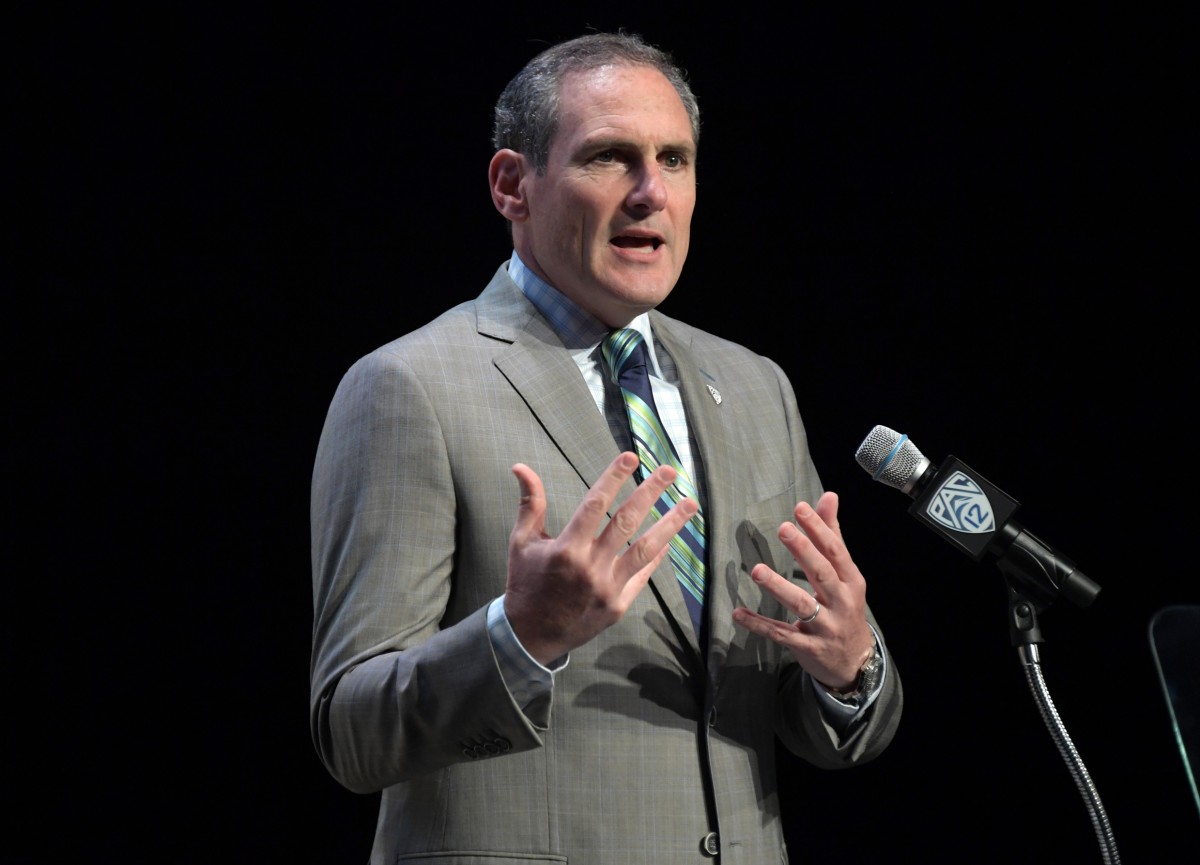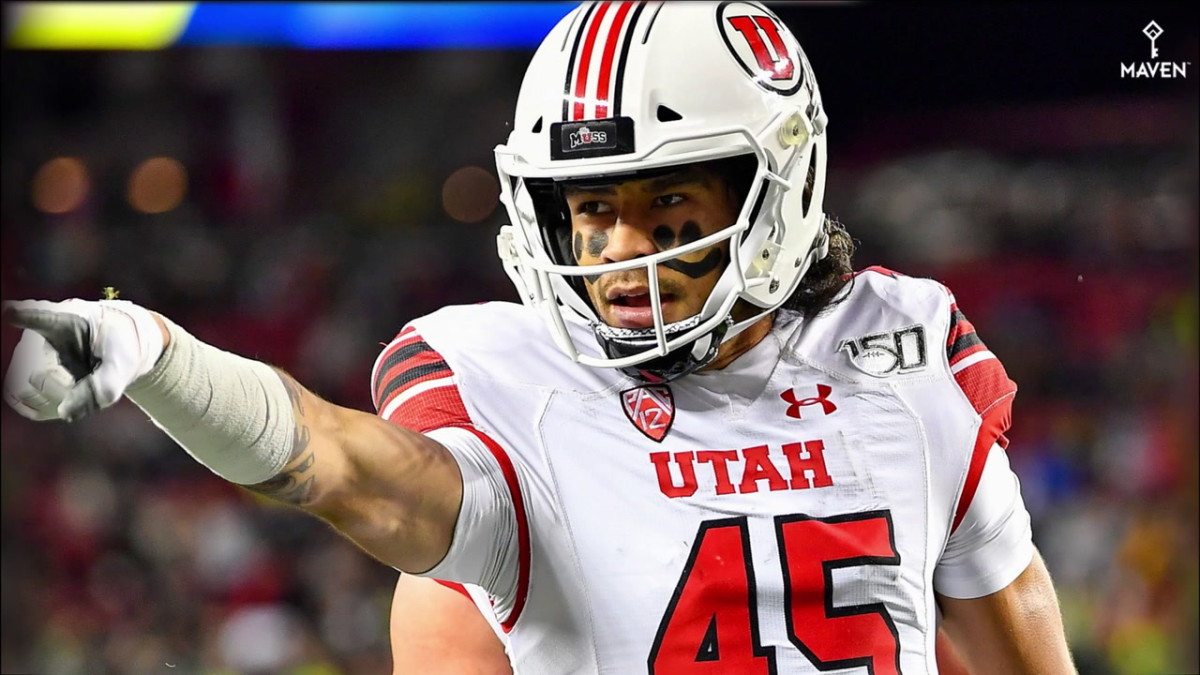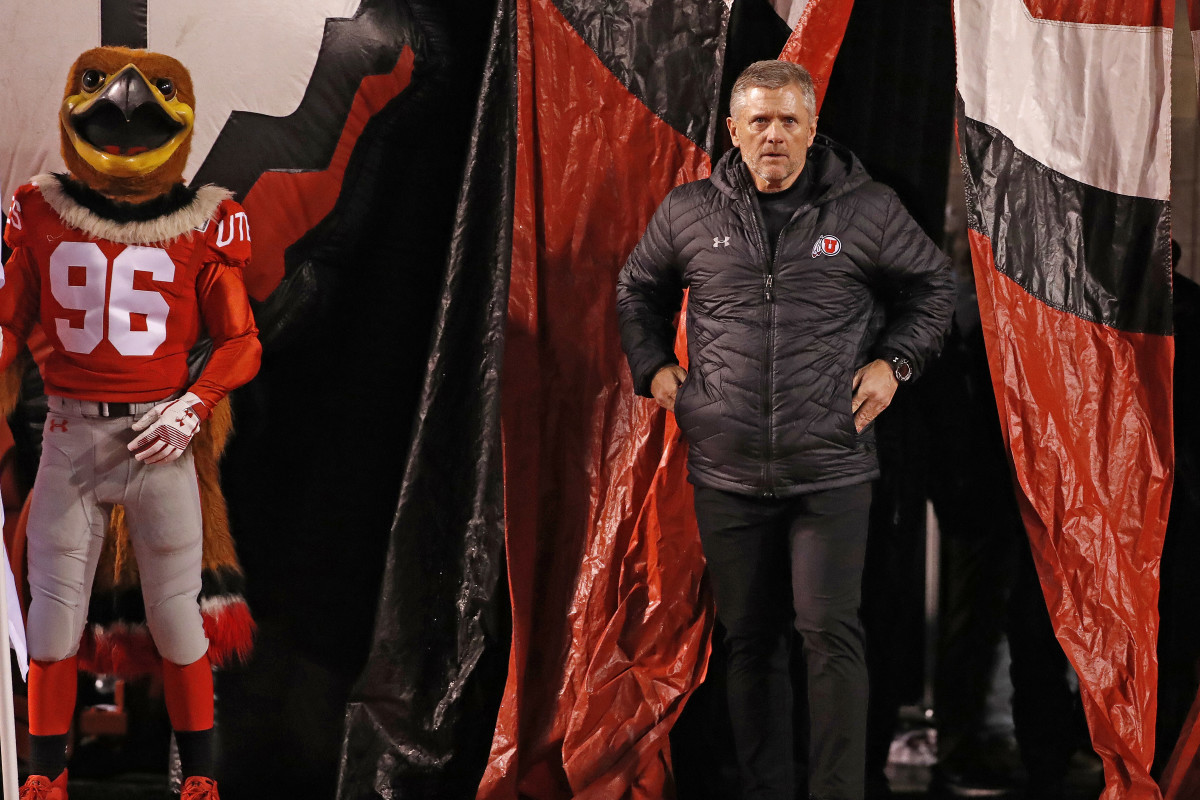Pac-12 CEO's Met on Friday, to Reconvene Next Thursday
If anything was clear from Friday's meeting amongst the Pac-12 CEOs, it's that the conference officials are in no rush to make a decision regarding the upcoming college football season.
Despite all of the reports coming out this past week that the conference could be playing college football much sooner rather than later, Pac-12 commissioner killed some of that buzz on Friday morning while on the Dan Patrick Show.
“I’m not expecting a vote today. I’m not going to push for one today,” Scott told Dan Patrick, hours before the league’s presidents and chancellors were scheduled to meet on a conference call. “This has been a rapidly developing series of events. ... We need to give the folks that lead our campuses a chance to digest all this, take into account everything going on on their campuses.”

Scott proved to be correct because when the meeting was finalized, the only thing agreed upon by the conference's presidents and chancellors was that they will reconvene for another meeting on Thursday.
“The Pac-12 CEO Group had an informative and productive meeting earlier today. We plan to reconvene this coming Thursday, Sept. 24 to make a decision regarding possible return to play prior to Jan. 1,” said a statement from the league office following the conclusion of the meeting. “The health and safety of our student-athletes and all those connected to Pac-12 sports will continue to be our number one priority in all of our decision-making.”
Despite the new information over the past week, the outcome of the meeting was disheartening considering how much coaches and players were pushing to play—and how local governments were supporting that idea by granting exemptions in regards to COVID-19 restrictions.

“We’ve had a lot of progress over the last day or two, especially with public health officials in California and Oregon,” Scott said. “I think it’s brought us a long way. So our medical advisory committee is much more comfortable with us moving forward.”
A lot has changed since the Pac-12 announced on Aug. 11 that all sports would be canceled/postponed until New Years Day.
It began a few weeks ago when the conference announced a partnership with Quidel, a diagnostic company with rapid COVID-19 testing that can produce results in 15 minutes. Each program will be supplied with the machines necessary for these tests by the end of the month.
Following that news, the Big Ten announced on Wednesday, Sept. 16 that it would be kicking off its 2020 college football season on Oct. 24. That left the Pac-12 as the lone Power 5 conference not playing this fall—and spurred the talks of resuming play.
Despite Scott's words on Friday morning, many coaches, players and media members were expecting the Pac-12 CEOs to make a decision sooner rather than later. Reason being, the more time passes, the more it makes sense to not play.

The Big Ten is starting in late October so it can be considered for the College Football Playoff, especially because the conference champion will have played nine games on the season. If the Pac-12 is to begin on Nov. 7, it means that the conference champion will only have seven games to its name — and that's extremely difficult to make a case for the CFP.
“If we’re going to move forward, it’s going to depend on how quickly we can get back to practice," Scott said. "Six weeks would be from Monday (to be ready for a Halloween time start), but we’re only getting these rapid tests next week, so I think that would be the most ambitious, maybe a week or two too quick for us. But somewhere in that zip code is where we would be playing if we’re playing."
Only time will tell where the Pac-12 goes from here — but it may be smart for coaches and players to begin preparing for a season as if they'll play. Because by the time the conference chancellor's and president's finally come to a decision, it may be too late to play for anything of worth.
“We’ve overcome the major obstacles that we had and the criteria that our medical advisers set with the public health authority approvals,” Scott said. “But our presidents and chancellors have to weigh the issues on their campuses. They’ll be the ultimate decision-makers, but in terms of the metrics and the issues we talked about in mid-August — the reasons why we weren’t going forward — we’ve made tremendous progress and have overcome those things.
”Want to share opinions or ask questions? We want to hear them! Making a profile is free and it only takes ~1 minute to set up. Also, be sure to like us on social media for future coverage:
Twitter — @UtahUtes_SI and Ryan Kostecka at @Ryan_Kostecka
